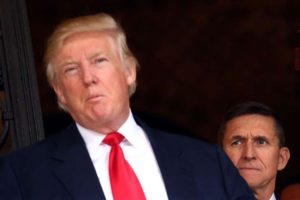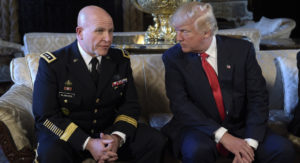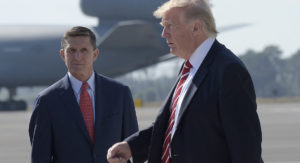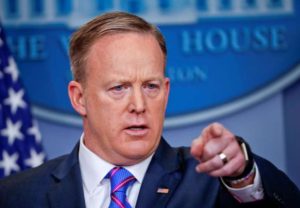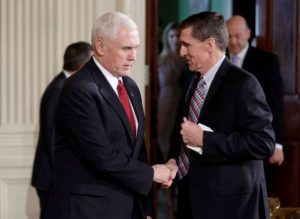Donald J. Trump once thought requests for immunity from key witnesses implied they were guilty of something.
Now the president of the United States is saying something quite different. Imagine that, if you can.
Former national security adviser Michael Flynn wants congressional committees to grant him immunity from prosecution in exchange for testimony on what he knows about Trump’s possible connection with Russian government hackers.
Guilty of something? Or is he trying to avoid what he calls “unfair prosecution”?
Something tells me it might be the former. That means the president’s one-time belief seems to hold up today.
Flynn, a retired Army lieutenant general — and an acknowledged brilliant battlefield commander — served as national security honcho for 24 days. Then he was pushed out by the president over questions about meetings he allegedly had with Russian government officials.
Oh, yes. The Russian government has been named by U.S. intelligence agencies as trying to hack into our computer network with the intention of influencing the 2016 presidential election.
Trump’s response? He has disparaged U.S. spooks, comparing them to Nazis. He has said nary a discouraging word about Russian president Vladimir Putin.
Flynn’s role is key here. Does he know something that he cannot tell because he might face criminal charges himself? And, oh by the way, does any of this include the possibility of treason?
I’ve tried to weigh this matter: immunity to protect someone who might have betrayed his nation?
I believe the president — and Flynn, for that matter — were right initially. Immunity requests would seem to imply criminal guilt.
Make Gen. Flynn talk, even at the risk of facing criminal prosecution.
